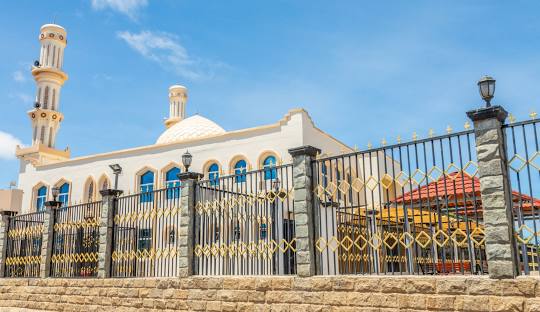Djibouti City, Djibouti
🌍 Djibouti City, Djibouti
“Where Salt Lakes Meet the Sea: Africa’s Geothermal Crossroads”
🗺️ Overview
Djibouti City is the capital and largest city of Djibouti, a tiny but strategically located country on the Horn of Africa. A vital Red Sea port, it’s a cultural blend of Somali, Afar, Arab, and French influences. While small, the city offers access to extraordinary natural phenomena—like Lake Assal and Lac Abbé—and a growing café culture.
Fly All Over Rating: 7.4/10
✔️ Unique landscapes
✔️ Diving & salt lakes
✔️ Safe & stable
❌ Expensive for its size
❌ Limited public attractions
✈️ Getting There & Around
-
Airport: Djibouti–Ambouli International Airport (JIB)
-
Visa: Required for most travelers (eVisa available)
-
Transport:
-
🚕 Taxis are common, though unmetered
-
🛻 4x4s essential for desert or lake trips
-
🚶 Walkable city center
-
Tip: Travel early in the day to avoid extreme afternoon heat.
🌋 Top Attractions
🧂 1. Lake Assal
The lowest point in Africa and one of the saltiest lakes on Earth—surreal, stark, and mesmerizing.
🌫️ 2. Lac Abbé
Steam vents, limestone chimneys, and alien landscapes—used as a backdrop in Planet of the Apes.
🌊 3. Plage des Sables Blancs
White sand beach on the Gulf of Tadjoura—swim, snorkel, or relax with locals.
🐠 4. Diving at Gulf of Tadjoura
Dive sites teem with whale sharks (in season), manta rays, and coral formations.
🕌 5. Hamoudi Mosque
A quiet and elegant piece of Islamic architecture in the historic city center.
🍴 What to Eat
Must-Try Dishes
-
Skoudehkaris: Spiced rice with lamb or chicken
-
Fah-fah: Goat meat stew with chili and vegetables
-
Laxoox: Somali-style fermented pancake
-
Fresh seafood: Grilled red snapper and barracuda
Recommended Spots
-
La Chaumière: Best for seafood and French-African fusion
-
Melting Pot: Western, Indian, and East African dishes
-
Cafe de la Gare: A charming colonial-era café near the old railway station
🏨 Where to Stay
💰 Budget
-
Hotel Rayan: Simple, safe, and centrally located
-
City Guesthouse Djibouti: Great value with friendly service
🛏️ Mid‑Range
-
Atlantic Hotel: Modern, clean, and central
-
Auberge Boulaos: Quirky and colorful with garden views
💎 Luxury
-
Kempinski Palace Djibouti: 5-star luxury with Red Sea views, pools, and fine dining
-
Sheraton Djibouti: Upscale comfort near the waterfront with private beach
🛍️ Souvenirs & Local Culture
-
Souvenirs: Salt crystals, Afar jewelry, camel figurines, local textiles
-
Culture: Blend of Afar, Somali, Arab, and French cultures
-
Events: Festival des Cultures (multicultural performances, typically in December)
📅 Best Time to Visit
-
November to February: Cooler, drier months (ideal for travel)
-
March to September: Very hot—avoid unless diving or salt lake visits are your focus
⚠️ Travel Tips & Safety
-
Language: French & Arabic (some Somali and Afar spoken)
-
Currency: Djiboutian Franc (DJF)
-
Safety: Generally safe and stable; military presence is high
-
Health: Bring sunscreen, hats, and hydration supplies; avoid tap water
-
Connectivity: Wi-Fi spotty outside hotels—consider a local SIM
Tip: Always negotiate taxi fares in advance.
🧳 Insider Tips
-
🐋 Visit between November–February to snorkel with whale sharks
-
🏜️ Book a local guide for Lac Abbé for safety and access
-
🍲 Join a local family dinner through community tourism for cultural immersion
-
📸 Bring a drone for jaw-dropping salt lake landscapes (check local regulations)
📊 Djibouti City Ratings (Out of 10)
| Category | Score | Notes |
|---|---|---|
| Natural Wonders & Landscapes | 9.0 | Salt lakes, chimneys, and diving treasures |
| Culture & Heritage | 7.0 | Unique blend, but few museums |
| Food & Dining | 7.5 | Spicy, fusion-rich cuisine |
| Affordability | 6.0 | Surprisingly pricey for Africa |
| Accommodation Options | 7.5 | From guesthouses to international hotels |
| Safety & Stability | 8.5 | One of the safest countries in East Africa |
| Travel Infrastructure | 6.5 | Limited outside city center |
| Overall Travel Value | 7.4 | Great for adventurers & nature-lovers |


